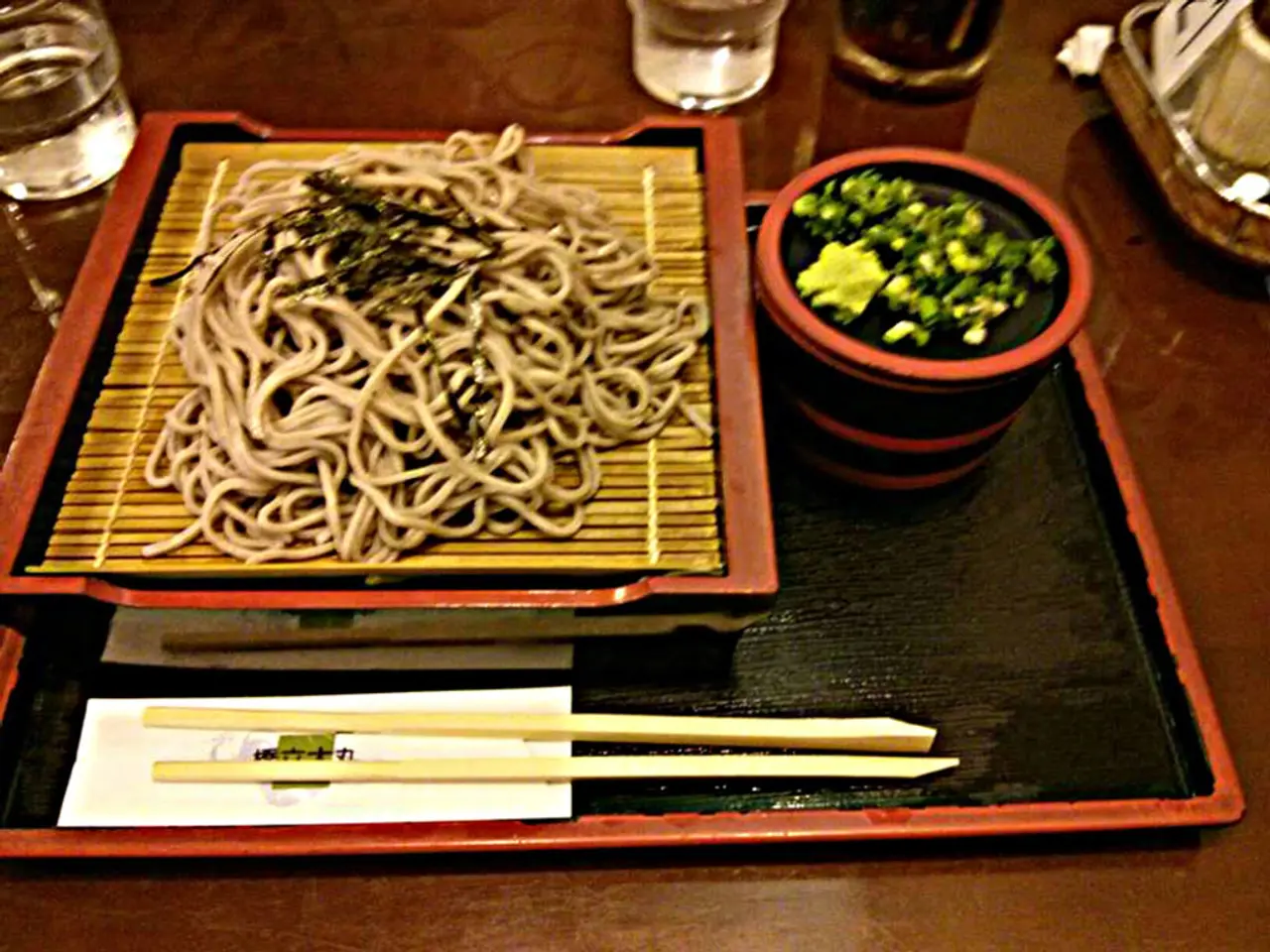Airline staff disclose reasons for advisory against consuming pasta and drinking tap water on flights - Avoiding Pasta and Tap Water on Flights: Attendants Explain the Reasons
In the skies, the comfort and safety of passengers are of utmost importance. However, there are certain factors that can impact the well-being of travellers, particularly when it comes to food and drink choices.
Passengers are advised to steer clear of pasta and tap water on airplanes, mainly due to the unique cabin conditions that can affect digestion and increase hygiene risks. The airplane environment, with its cabin altitude between 6,000 and 8,000 feet and very low humidity, can dry mucous membranes, slow digestion, and trap intestinal gas. This makes gas-producing or heavy foods like pasta a potential source of discomfort, queasy stomachs, and bloating during flights.
The tap water served on airplanes for coffee or tea also carries hygiene concerns. The boilers that heat water often draw from storage tanks beneath the aircraft floor, which can develop biofilm if not cleaned frequently enough. While these tanks undergo safety checks, deep cleaning may be weeks apart on busy routes, potentially allowing bacterial buildup. This makes cabin coffee and tea a "hygiene gamble".
To reduce digestive discomfort and avoid possible contamination, flight attendants recommend consuming lighter, blander foods and avoiding tap water-based drinks on flights.
While the issue of bacteria in tap water on airplanes is not as significant in the United States compared to other countries, E. coli bacteria have been found in samples of tap water on airplanes. To ensure safety, it's best to stick to bottled water.
Another factor to consider is the impact of alcohol at high altitudes. Dr. Clare Morrison, a physician at MedExpress, advises against consuming alcohol on airplanes due to the lower oxygen content in the blood at high altitudes. This can make one appear more intoxicated than on the ground after consuming the same amount. The "Huffington Post" published an article discussing this effect in detail.
For flight attendants, alcohol consumption and high-salt foods like soups, pasta dishes, salty snacks, are discouraged due to their negative effects on the body at high altitudes. Instead, they often bring their own food to work due to concerns about the food served on airplanes.
In conclusion, to ensure a comfortable and safe flight, passengers are advised to opt for lighter meals and stick to bottled water to minimise potential digestive discomfort and hygiene risks. For flight attendants, being mindful of alcohol and high-salt foods is crucial for maintaining their well-being during flights.
- The unique cabin conditions in aircraft can affect digestion and increase hygiene risks, making it advisable for passengers to avoid gas-producing or heavy foods like pasta during flights.
- To maintain their well-being during flights, flight attendants often bring their own food due to concerns about the food served on airplanes and the negative effects of high-salt foods at high altitudes.
- The science behind air travel reveals that the lower oxygen content in the blood at high altitudes can make one appear more intoxicated after consuming alcohol, making it a factor to consider for both passengers and flight attendants when considering lifestyle choices during travel.




